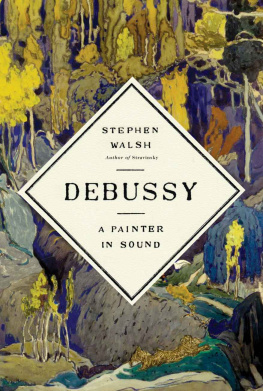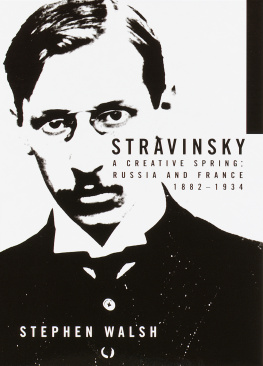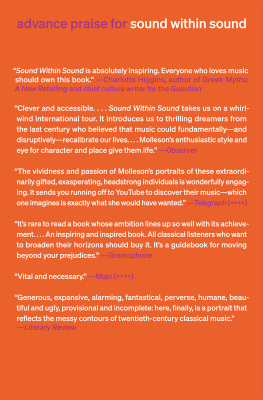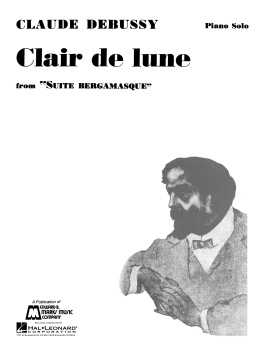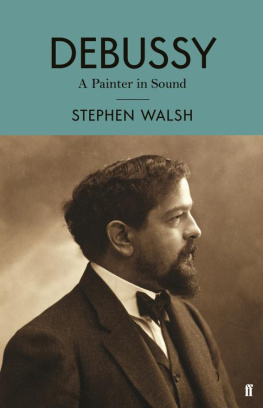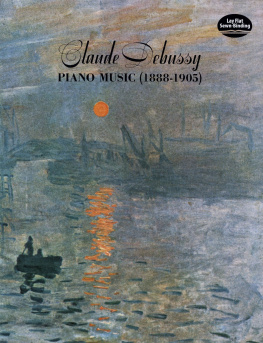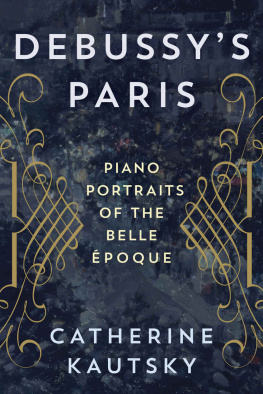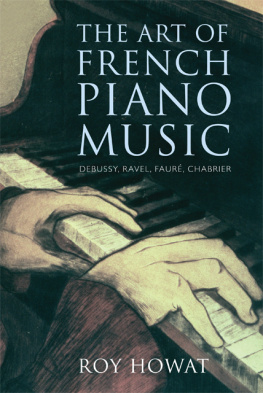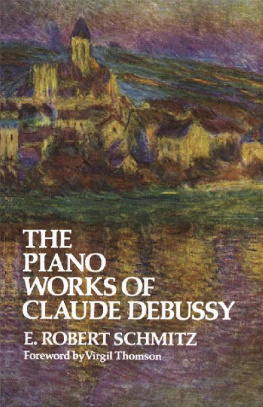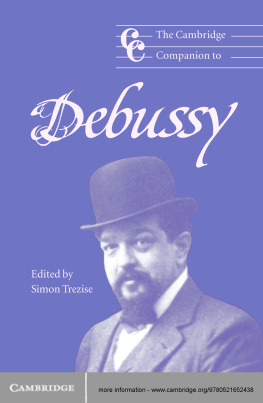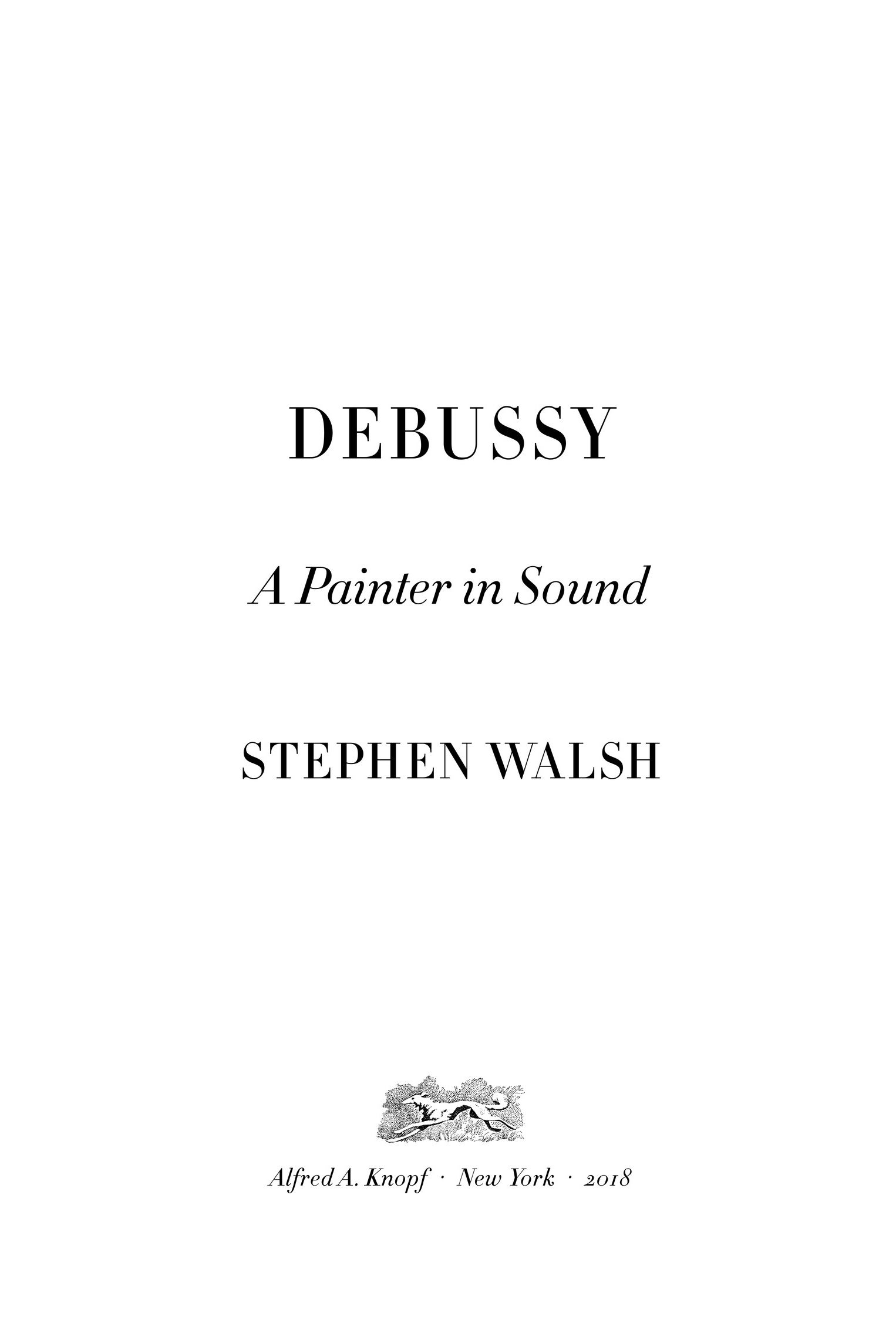Exact equivalences are, of course, impossible to establish but certain parallels can be made, especially since, before the First World War, European currencies were stable. The franc was common to France, Belgium, Switzerland and Italy, one for one, and the pound sterling was worth 25 of them. In 1900 a good average restaurant meal in France might cost 4 francs, a medium-class hotel room about 6, and a second-class rail ticket from Paris to Lyon 38. To post an ordinary letter within France cost 15 cents. The 250 francs a month Debussy earned playing Wagner every Saturday for Mme Escudier thus seems fairly modest, especially as it was more or less all he was earning at the time, and his later, much bigger advances (25,000 francs for the sale of Pellas et Mlisande to Durand, 20,000 for Khamma, 20,000 for Le Martyre de Saint Sbastien) had to be set against the 3,600 per annum maintenance he had to pay Lilly Texier, his expensive Bois de Boulogne apartment, the lifestyle that went with it, and the fact that these sums were island peaks in a choppy sea. Needless to say, his medical treatment in his final years would have had to be paid for. He never received an adequate regular income, liked luxury and was a poor money manager.
PRELUDE
A Biography of Sorts
He rejects all heritages and is repelled by those construction kits that so often turn the composer into a make-believe architect; for him, form is never given; he was constantly in search of the unanalysable, of a development in the course of which surprise and imagination retained their rights; he had nothing but mistrust for architectural monuments, preferring structures in which rigour and free will intermingle: with him words, keys, all the paraphernalia of scholarship, lose their sense and relevance; the usual categories of an outworn tradition are inapplicable to his work, even if we extend their meaning.
PIERRE BOULEZ
Pierre Boulezs image of Debussy as a composer in constant rebellion against musical tradition has to be understood in the light of his own rejection of the past. But its by no means a distorted picture. The one thing it lacks, perhaps inevitably, is any clear sense of what Debussy took from the musical environment in which he grew up: what he accepted as well as what he rejected.
I spent the first dozen years of my money-earning life as a freelance music critic, an activity that positively forbids specialisation but forces you to confront and find words to describe whatever the repertoire and your editor is pleased to throw your way. There was already a great deal of Debussy about in those days, the 1960s and 1970s; but there was plenty of other French music as well, the music of the world into which Debussy was born and against which, in his student years especially, he fought. Of course there was Pellas et Mlisande, but you could also catch a production at the St. Pancras Festival without the extended interludes (the form in which it was composed, but never played in Debussys lifetime). There were operas by Gounod (not only Faust) and Bizet (not only Carmen and Les Pcheurs de perles); there was Massenet (not just Werther and Manon) and Chabrier (Le Roi malgr lui, Ltoile), and Lalo (Le Roi dYs), and Dukas (Ariane et Barbe-bleue), Chausson, Faur (especially his chamber music and songs), wall-to-wall Berlioz after his centenary in 1969, but also Alkan and Franck, Saint-Sans, even dIndy, and plenty of the earlier French musicRameau, Franois Couperin, Destouchesthat Debussy complained was neglected in the Paris of his youth.
It was easy even then to identify all these composers as in one way or another French (with due allowance for the Belgian Franck), much harder to put ones finger on what it was that they had in common. In the introduction to his book on French music, Martin Cooper had provided a lucid explanation of the differences between the French and, for example, German views of art. After quoting a remark of the critic W. J. Turner that it is the sublimity of the soul that makes the music of Beethoven and Bach so immeasurably greater than that of Wagner and Debussy, he pointed out that to seek in French music primarily for a revelation of the composers soul or for marks of the sublime is to look for something which the French consider a by-productThe French composer is consciously concerned with the two data which no one can questionhis intelligence and his senses. And Cooper added, The regarding of a piece of music as an artefacta thing of planned shape, dimensions, colour and consistencyrather than as an expression of an emotion whose end is in itself, brings the French composer nearer than any other to the plastic artist.
This strikes me as a perfect description of the attitude of Debussy to his work, and indeed of the work itself. But it doesnt exactly fit the other composers listed above. Or rather it fits them only in part, and it is precisely this hybrid character of so much nineteenth-century French musicits partial fulfilment of the aspirations that, in Coopers analysis, would make it truly Frenchthat explains the context against which Debussy, first as a student, then as a composer and music critic, found himself rebelling. The problem, in two words, was German music. From Gluck to Wagner, the German influence on French composers had been irresistible and, in Debussys view, profoundly damaging. The influence of Gluck on French music, he wrote in Gil Blas after a performance of Rameaus Castor et Pollux, is well known, an influence that could only have manifested itself thanks to the intervention of the Dauphine Marie-Antoinette (an Austrian). Rameaus music, he goes on, is

